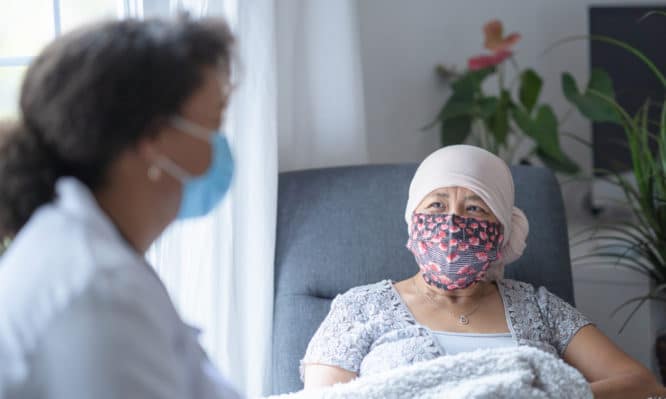More than half of all blood cancer patients who have been fully vaccinated against coronavirus have little protection against Covid-19, according to a new British scientific study.
Researchers from King`s College and the Francis Creek Institute in London, who conducted the SOAP-2 study and published it in the journal Cancer Cell Biology, studied 159 people, of whom 72 with solid tumors, 56 with blood cancers and 31 without any cancer (control group). Everyone had done both doses of the Pfizer / BioNTech vaccine.
It was found that after complete vaccination 57% of patients with blood cancers had an insufficient immune response to the coronavirus. Only 36% had developed antibodies and cellular immunity (T-lymphocytes), compared with 78% in cancer patients with solid tumors and 88% in healthy controls.
The findings confirm the increased risk for Covid-19 even those fully vaccinated with blood cancers and the need to take a third booster dose. On the other hand, patients with solid tumors, such as breast, skin or urological tumors, while having a small immune response after the first dose of the vaccine (only 38%), the protective immunity improves significantly after the second dose.
While previous studies have shown that delaying the second dose in healthy people can improve their body's immune response to the coronavirus, a new study shows that this is not the case for cancer patients, who should not delay the second dose.
The researchers also highlighted the need for vulnerable groups such as cancer patients to wear a mask and keep their distance, especially in crowded places and on public transport. Vaccination of children who come into contact with patients with blood cancers is also recommended. Lead researcher Professor Adrian Heidei said: "Vaccines against the SARS-CoV-2 virus are a remarkable success, but not for everyone.
As so many cancer patients continue their daily routine while remaining largely unprotected, society must continue to wear masks and keep appropriate distances, and scientists must find ways to make vaccines. COVID-19 more effective for cancer patients ”.
